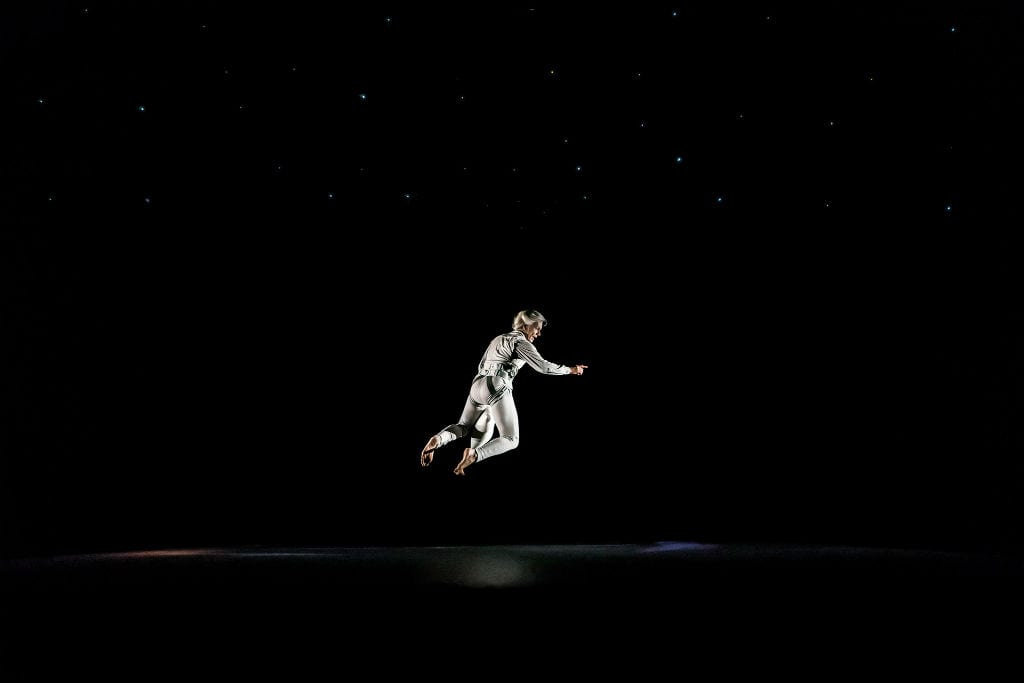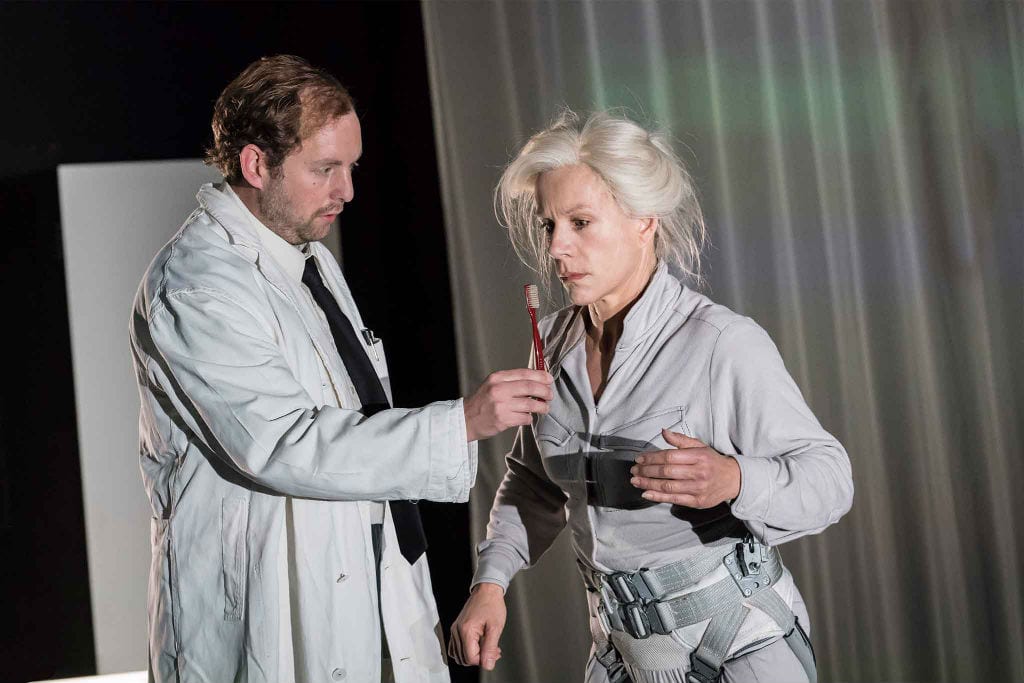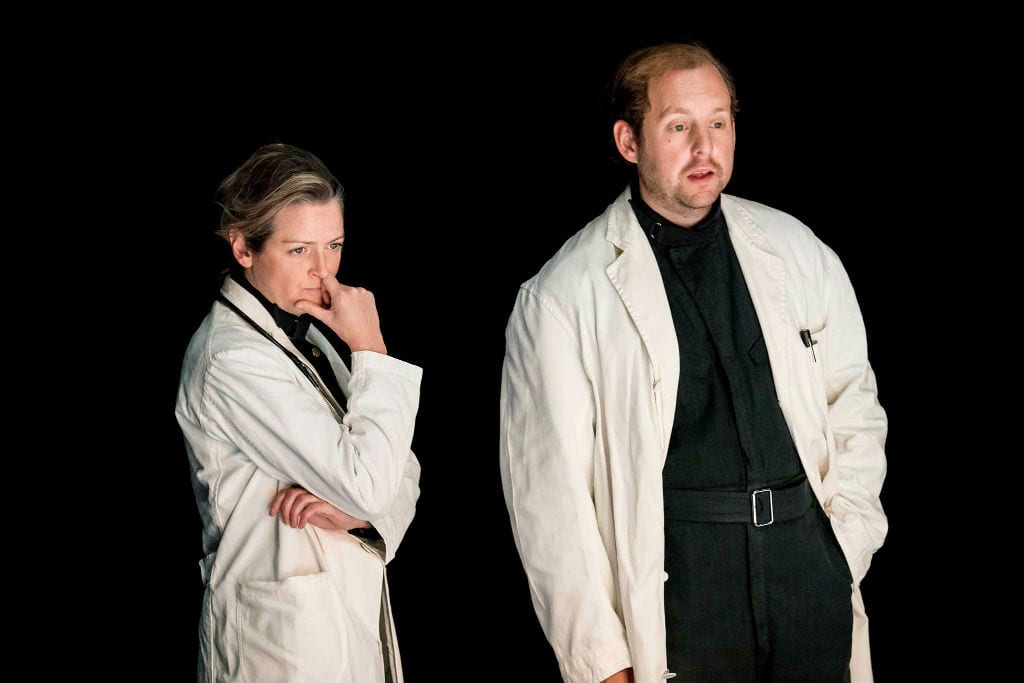In the preface to Wings, playwright Arthur Kopit emphasises the scientific knowledge required to direct this play, and the understanding of brain trauma that he wants to underpin each production. Perhaps conversely, the production notes focus on the sea of confusion and uncertainty Wings wishes to evoke. Trauma is uncertain, often unreal, but, perhaps, in a production where Emily Stilson (Juliet Stevenson) spends so much time impressively spinning above the stage, it would have been good to keep her feet on the ground just a little more.
Emily is reading, onstage, before the play starts, a spot of quiet contemplation in the midst of the audience melee of sound, which is heightened by chatter piped in through the speakers. She is a half-noticed contrast to the whirling, manic presence she becomes, and perhaps a nod to the way our own brains, largely untroubled, make the connections between sound and meaning: a process only noticeable when something has gone wrong.
There is no interval in Wings. This is an unbroken entry into her world, and it is one that seeks to be entirely immersive. Stevenson’s beginning speech is barely audible; she is almost entirely obscured by projections onto translucent drapes, discordant sound blurring her words. It is all a bit much at times – a bit self-consciously Art School – but, thankfully, it is not used overmuch. The most effective use of lighting comes with the blinding flashing lights, leading several audience members to flinch back from the stage alongside Emily. It is this actual discomfort, rather than lazily invoked chaos, that comes the closest to depicting the trauma of a stroke.
The play is at its strongest when Emily is alone, none of the flashy theatrics obscuring Stevenson’s performance. In one moment, she dangles above the stage (the amount of core strength required throughout is truly astonishing) illuminated by a single spotlight, her four shadows haunting, searching figures on the walls. The fragmentation of language incurred by her stroke works best during explorations of grief, bringing a slightly different dimension to the reflections, slightly reminiscent of Eimear McBride.
There are fleeting moments of humour with doctors and other patients: Kelle Bryan is particularly charming as Billy, and Lorna Brown’s Amy is an immensely comforting presence. Wings is strongest when it takes Amy’s own advice, and slows down; when Emily moves beyond the gliding, shifting stage, and transcends the staged world to become something a little lighter, a little more free.




